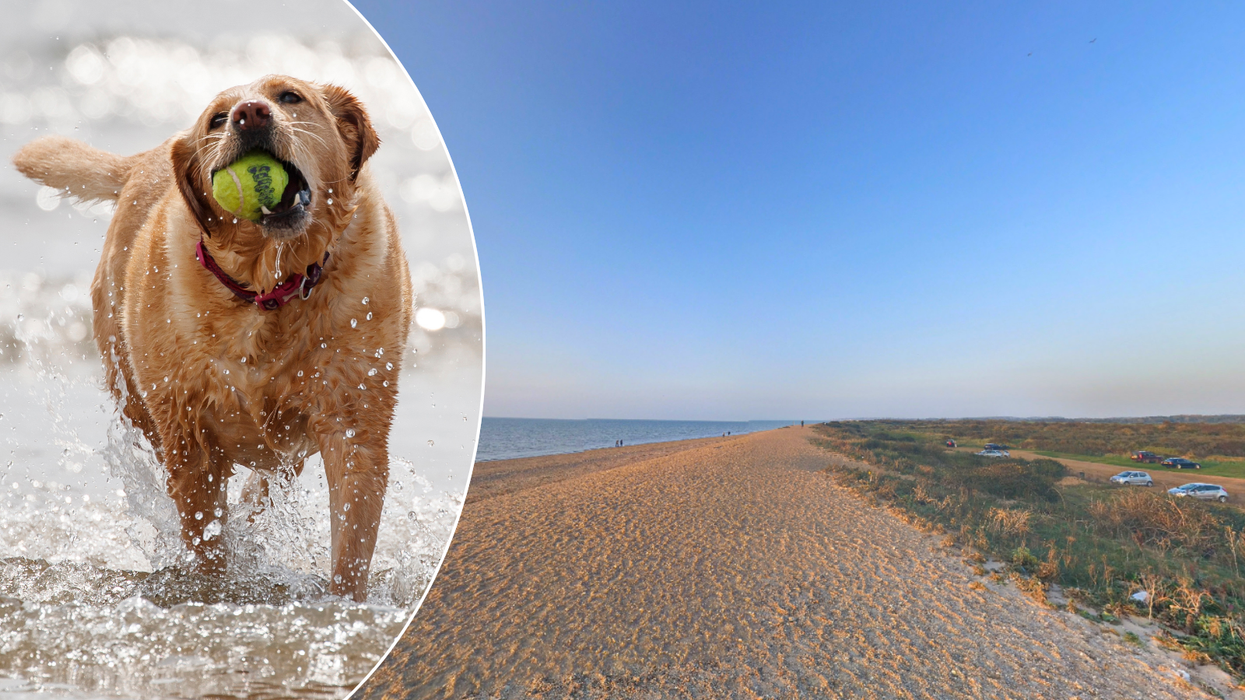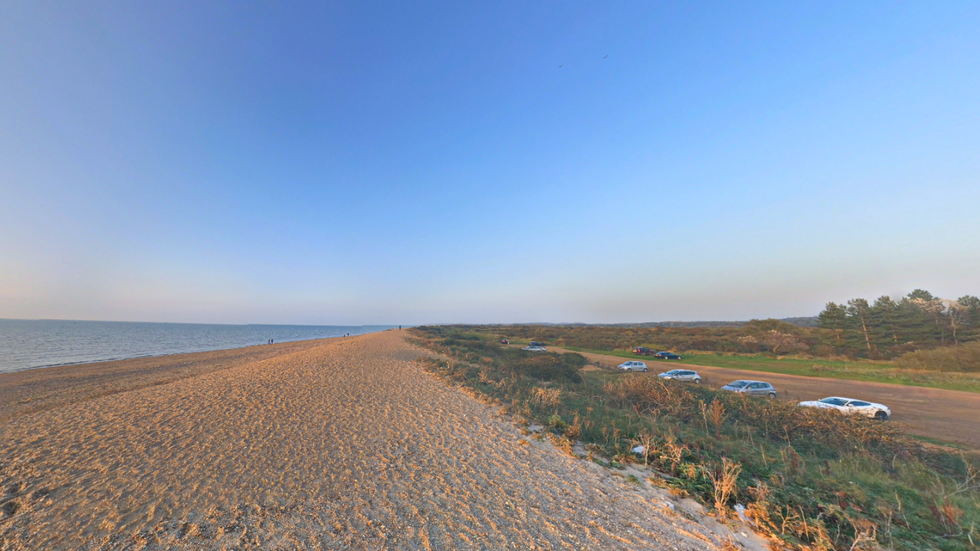Dogs could be banned from popular UK beaches by killjoy, eco-conscious local councillors

Dogs have come under fire for digging up a shingle ridge on the Norfolk beach
|PA/GOOGLE

The animals have been digging up a stretch of coastline - leaving numerous properties at risk
Don't Miss
Most Read
Latest
Dogs could soon be banned from English beaches by eco-conscious councillors over fears the pets are causing coastal erosion.
Walkers - both human and canine - along a stretch of coast in west Norfolk have been blamed for damaging sea defences on the area's vulnerable beaches.
Dogs, in particular, have come under fire for digging up a shingle ridge on a seven-mile beach between the villages of Hunstanton and Snettisham in Norfolk.
The ridge protects thousands of homes between the settlements from flooding - but the animals have been digging it up, leaving the properties at risk.

Councillors have urged dogs and dog walkers to stay away from the shingle ridge
|The problem has been called out by the Environment Agency (EA), which has warned that human activity along the coastline has left the shingle ridge at risk of erosion.
And EA officials have urged local authorities to restrict access along the coastal hotspot in order to protect the shoreline from tidal surges.
Meanwhile, the EA has been keeping a close eye on property owners in nearby Heacham over concerns they are digging into the shingle ridge to get a better view across the Wash, the Eastern Daily Press reported.
Agency bigwigs and West Norfolk councillors recently met for talks on the future of the beach - and some of the latter have come down on the side of banning walkers in a move to further protect the ridge.
MORE FROM NORFOLK AND THE EAST OF ENGLAND:
- Leafy Norfolk village fumes as row erupts over flying Union Flag with some residents saying flag is 'divisive'
- Parish council chairman banned from local shops after criticising second homeowners
- Labour's betrayal: Pensioners in seat that turned red for first time EVER in 2024 despair at Winter Fuel Payments axe - 'How can they do that to a human being?'

Environment Agency have been keeping a close eye on homeowners over concerns they've been digging up parts of the ridge
|Sandra Squire, the council's cabinet member for environment and coastal, said: "We need to encourage people to avoid walking and damaging the shingle ridge.
"This should also include dogs as people often allow their dogs to dig into the [ridge].
"This is also damaging - and people need to be responsible for their own actions."
Soon, signs could be erected along the beach urging people not to tread on the ridge in a bid to stop even more damage.
Despite the anti-walking push, the Environment Agency's report concluded the ridge was, in fact, in good condition - and had actually been growing naturally.
But EA officials still hope discouraging walkers would further protect vegetation which helps maintain the ridge's structure.
It concluded a "trigger point" had been reached - meaning it won't have to shell out £5-8million in "beach recharge" costs, or importing materials from elsewhere to shore up the coastal defences.










